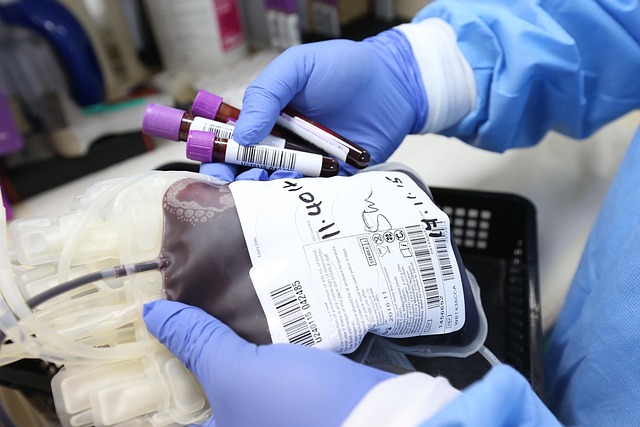Explore Job Paths in Food Packing Across the Growing U.S. Industry
Food packing plays a vital role in the national supply chain and offers consistent job opportunities. Learn what to expect in these positions, what skills are often valued by employers, and how this growing industry can support stable employment in various regions of the U.S.

Food Packing Job Roles in Stable Work Environments
The food packing industry provides a variety of positions within structured, predictable work settings. Production line workers represent the backbone of operations, handling tasks like sorting, arranging, and packaging food items according to strict quality standards. Machine operators oversee sophisticated equipment that fills, seals, and labels products at high volumes. Quality assurance inspectors verify that packaged goods meet safety regulations and company specifications before distribution.
Many facilities operate multiple shifts, offering flexibility for workers with different schedule needs while ensuring continuous production. The controlled environments of food packing plants provide consistency that many employees appreciate—clear expectations, defined processes, and regular schedules create stability often missing in other industries. Additionally, many facilities operate year-round, reducing seasonal layoffs common in other sectors of food production.
What to Know About Entry Level Food Packaging Careers
Entry-level positions in food packaging typically require minimal prior experience, making them accessible to workers from diverse backgrounds. Most employers provide comprehensive on-the-job training covering food safety protocols, equipment operation, and quality control standards. Starting wages vary by region and facility size, but many positions begin above minimum wage due to the essential nature of the work.
New employees should expect a physically active work environment that may involve standing for extended periods, repetitive motions, and occasional lifting. Many companies provide regular breaks and ergonomic equipment to mitigate potential strain. Career advancement opportunities exist for dedicated workers, with pathways to lead positions, quality control roles, or specialized machine operation often available after demonstrating reliability and mastering basic skills.
Skills Commonly Needed in the Food Packing Sector
While educational requirements for many food packing positions remain minimal, certain skills significantly enhance employability and advancement potential. Attention to detail ranks among the most critical abilities, as workers must consistently identify quality issues and maintain strict adherence to safety protocols. Physical stamina and manual dexterity enable efficient handling of products and equipment throughout shifts.
Time management skills prove essential in production environments with defined quotas and deadlines. Basic math proficiency helps workers track counts, weights, and measurements accurately. As technology increasingly enters the workspace, comfort with digital interfaces and computer systems becomes valuable for operating modern packaging equipment. For those seeking advancement, developing problem-solving capabilities and communication skills can position workers for supervisory roles overseeing production teams.
How Food Packing Supports Community Supply Chains
Food packing facilities form crucial links between agricultural producers and consumers, transforming raw ingredients into safe, transportable products that stock grocery shelves nationwide. These operations often establish themselves near farming regions, creating employment clusters that support rural and suburban communities. By processing locally grown products, these facilities reduce transportation costs and environmental impacts while providing fresher goods to consumers.
The economic impacts extend beyond direct employment. Food packing plants support adjacent industries including transportation, equipment manufacturing, and maintenance services. During economic downturns, food packing typically remains more stable than many other industries due to the essential nature of food products. This consistency creates predictable cash flow in communities that might otherwise face significant economic volatility during challenging times.
Workplace Expectations for Food Packaging Employees
Food safety represents the paramount concern in packaging facilities, with strict adherence to regulatory standards required from all employees. Workers must follow detailed protocols for personal hygiene, including appropriate attire like hairnets, gloves, and clean uniforms. Regular training on contamination prevention, allergen control, and proper sanitization procedures ensures compliance with FDA regulations and company policies.
Productivity metrics track individual and team performance, with many facilities implementing efficiency incentives for meeting or exceeding targets. The work environment prioritizes cleanliness, with regular sanitizing procedures integrated into daily operations. Communication protocols ensure proper handoffs between shifts and departments, maintaining consistent production quality. For new employees, adaptability proves essential as production needs may shift based on seasonal availability and market demand.
Compensation and Benefits in the Food Packaging Industry
Food packaging positions typically offer competitive compensation compared to other entry-level manufacturing roles. According to industry data, production line workers earn average hourly wages between $13-$18, with variation based on location, facility size, and shift differentials. Machine operators and quality inspectors generally command higher rates, often ranging from $16-$25 hourly depending on experience and technical expertise.
Many larger companies provide comprehensive benefits packages including health insurance, retirement plans, and paid time off. Some facilities offer attendance bonuses, production incentives, or profit-sharing opportunities that can significantly increase total compensation.
| Position | Typical Starting Wage | Experienced Wage | Common Benefits |
|---|---|---|---|
| Production Line Worker | $13-$15/hour | $15-$18/hour | Health insurance, paid time off, shift differentials |
| Machine Operator | $15-$18/hour | $18-$25/hour | Health insurance, retirement plans, production bonuses |
| Quality Control | $14-$17/hour | $17-$22/hour | Health insurance, paid time off, advancement opportunities |
| Warehouse/Shipping | $14-$16/hour | $16-$20/hour | Health insurance, overtime opportunities, attendance bonuses |
Prices, rates, or cost estimates mentioned in this article are based on the latest available information but may change over time. Independent research is advised before making financial decisions.
Conclusion
The food packing industry continues to provide stable employment opportunities across America, combining accessibility for entry-level workers with potential for long-term career development. As an essential component of the national food supply chain, these positions offer relative job security even during economic fluctuations. For job seekers prioritizing stability, consistent schedules, and clear expectations, exploring opportunities in food packaging can lead to sustainable employment in a growing industry that serves fundamental consumer needs while supporting local economies.




